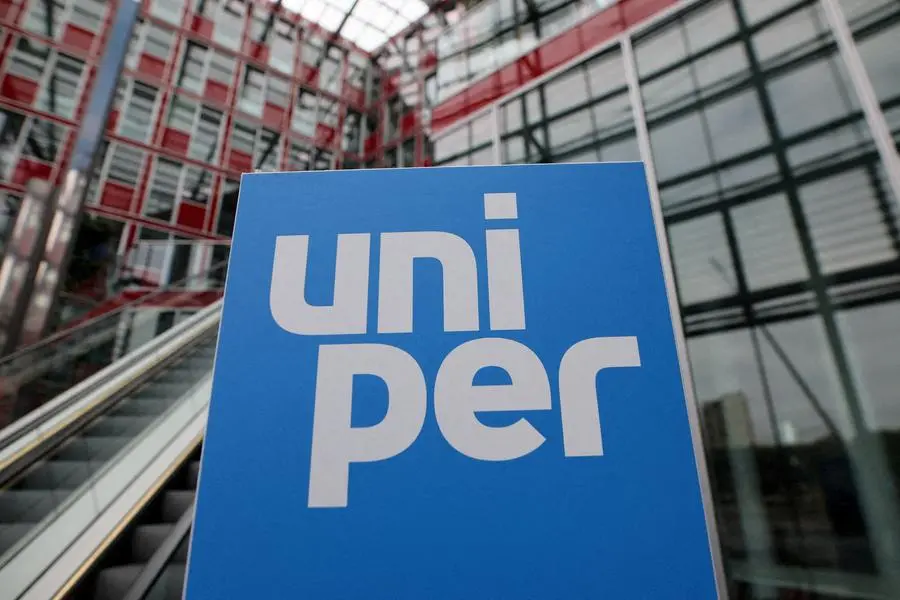PHOTO
FRANKFURT/DUESSELDORF - Uniper boosted provisions on Thursday to repay state aid received during Europe's energy crisis in the latest sign that re-privatisation of the German energy firm could begin next year.
Bailed out by Berlin in 2022, Uniper said it had raised its provisions to 3.4 billion euros ($3.7 billion) from 2.2 billion after operating improvements and a recent arbitration ruling win against former supplier Gazprom.
Of that, around 2.9 billion euros are expected to be repaid to Berlin at the start of next year, Uniper said, adding the final amount would depend on 2024 results.
The news comes a week after the group raised its outlook for the current year, boosted by a better-than-expected performance in the first half.
"2024 is the year of shifting gears," Chief Executive Michael Lewis told analysts, adding the group had undertaken a major turnaround after nearly collapsing two years ago.
Berlin, which owns 99.12% in Uniper, is currently preparing the sale of a minority stake likely in the spring of 2025, people familiar with the matter said, in what will possibly be followed by further share sales.
"We've made decisive progress toward capital-market viability in recent months. We've now fulfilled all the requirements within our purview and are working continuously to implement our strategy," finance chief Jutta Doenges said.
Uniper has been caught in a legal tussle with gas supplier Gazprom ever since the Russian firm first lowered and later suspended supply, forcing the German government to rescue Uniper via a 13.5 billion euro lifeline in what became the energy crisis' most high-profile nationalisation.
Uniper said on Thursday a complaint it had filed against a Russian court decision -- requiring the German utility to pay more than 14 billion euros in damages -- had failed, adding Gazprom was legally entitled to seize Uniper assets in and possibly even outside Russia.
Uniper, which owns a majority stake in Russia's Unipro that has been fully written down, therefore said possible asset foreclosure was a risk and that it would defend itself against any attempts by Gazprom to enforce its claim.
It did not spell out the potential financial risk and which assets could be at risk.
($1 = 0.9148 euros)
(Reporting by Christoph Steitz and Tom Kaeckenhoff; Additional reporting by Vera Eckert; Editing by Miranda Murray, Rachel More and Emelia Sithole-Matarise)




















